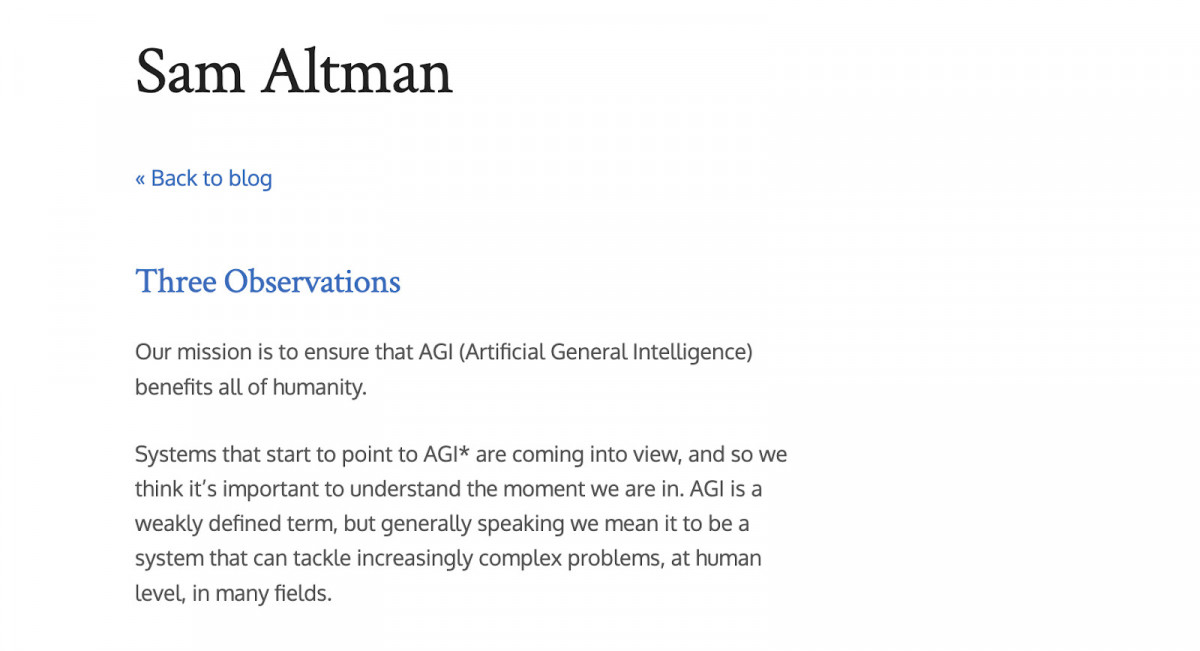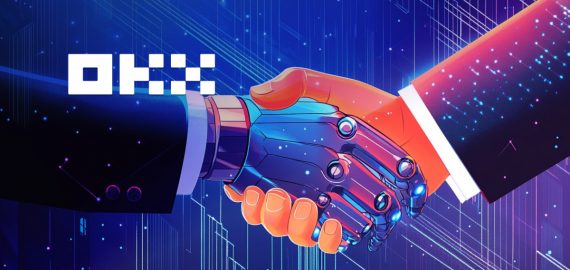Sam Altman on the AI Revolution and What Comes Next


In Brief
Sam Altman, CEO of OpenAI, discusses the economic and cultural implications of AI’s rapid growth, its potential to disrupt sectors, and its potential societal transformations.

The fast growth of artificial intelligence is reshaping the world both economically and culturally. Sam Altman, CEO of OpenAI, has provided insights into the coming years of AI, particularly as it advances toward artificial general intelligence. His insights focus on the economic consequences of AI development, its ability to disrupt sectors, and the societal transformations it may bring. These outcomes provide a framework for interpreting the future of AI and its role in human development.

The Economics of AI Scaling
The intelligence of an AI model is closely linked to the resources available for its training and operation. Compute power, data, and inference capabilities provide the foundation for AI advancements, with their impacts following predictable scaling rules. Increasing financial investment in AI results in consistent gains, indicating a logarithmic connection between resource spending and model performance.
A notable illustration of this trend is the decrease in the cost of AI utilization. Historically, Moore’s Law anticipated that computing power would double every 18 months. However, AI has outpaced this rate. The cost of operating AI models has dropped dramatically, with token prices for OpenAI models falling at an unprecedented rate. Between early 2023 and mid-2024, the price per token of GPT-4 fell by a factor of 150. This quick cost decrease expands accessibility and promotes adoption across sectors.
The socioeconomic value of AI follows a super-exponential curve, which means that even little gains in intelligence result in disproportionately enormous economic advantages. As AI investment increases, the benefits appear worthy of sustained financial commitment. This trend shows that AI research will continue to be a top priority for businesses and governments throughout the world.
AI as a Workforce Multiplier
One of the most urgent consequences of AI progress is its incorporation into the workforce. AI agents, serving as virtual coworkers, are increasingly taking over activities previously handled by knowledge workers. These AI systems, although requiring human supervision, can do more complicated tasks.
One interesting example is software engineering, where AI-powered assistants may execute responsibilities equivalent to those of a junior engineer. While such agents may not produce new ideas on their own, they may perform regular coding tasks, debug software, and increase productivity. When scaled up to dozens or even millions of instances, these agents have the potential to transform software development and other industries.
Similar developments are projected in areas such as banking, healthcare, and legal services. The efficiency advantages of AI-driven automation might result in lower costs and more production. However, this transition raises concerns about job displacement since certain positions may become outdated as new possibilities arise. The balance between AI augmentation and human employment will be an important factor in the next few years.
Development of Financial and Social Structures
The integration of AI into daily life will be slow, but the long-term consequences will be enormous. Individuals may have access to intellectual resources comparable to whole populations by 2035.
AI’s impact on economic systems is likely to be unequal. Certain industries may see little impact, whilst others, particularly those depending on cognitive work, may see significant upheaval. Scientific research, for example, is expected to accelerate, perhaps leading to advances in health, clean energy, and other necessary areas.
As AI reduces the cost of intelligence, many goods and services may become less expensive. However, luxury items and limited resources, such as land, may suffer price hikes. Policymakers must address possible disparities in wealth distribution to ensure that the advantages of AI developments reach all parts of society.
One method to reduce economic inequities is to provide widespread access to AI resources. Proposals such as universal “compute budgets” may enable individuals to use AI for personal and professional development. Alternatively, lowering the cost of AI access may provide comparable effects, making sophisticated technology more accessible.
The Role of Governance in AI Deployment
While scientific advancement in AI research looks uncomplicated, the social and political dimensions of its implementation remain challenging. Public policy and societal views will influence the course of AGI deployment. OpenAI’s iterative product release approach strives to allow society and technology to progress together, increasing familiarity and adaptation.
AI governance will need to balance safety and individual empowerment. Open-sourcing AI technology may increase openness and creativity, but it may also pose security problems. Policymakers will need to strike a balance between maximizing benefits and avoiding potential downsides.
Artificial intelligence has huge geopolitical ramifications. Authoritarian governments may use AI for widespread monitoring and control, raising issues about privacy and human rights. Ensuring that AI is used for empowerment rather than tyranny will be an important task for world leaders.
The Future of Human-AI Collaborations
AI is not anticipated to replace human agency, but rather to enhance it. The ability to manage a changing technology world will be a useful talent, as adaptation and strategic thinking become more essential. Individuals that skillfully use AI will be able to have a considerably larger influence than previously.
The long-term ambition for AI is to democratize access to intelligence, allowing anyone to direct massive computing resources toward addressing global concerns. Creativity, creativity, and problem-solving will remain fundamental to human progress, with AI acting as a potent enabler.
The trajectory detailed by OpenAI’s leadership points to a future in which AI integrates smoothly into society, increasing productivity and quality of life. However, obtaining equal results would need meticulous planning and aggressive governance. Choices taken now will influence AI’s position in the next decades.
Disclaimer
In line with the Trust Project guidelines, please note that the information provided on this page is not intended to be and should not be interpreted as legal, tax, investment, financial, or any other form of advice. It is important to only invest what you can afford to lose and to seek independent financial advice if you have any doubts. For further information, we suggest referring to the terms and conditions as well as the help and support pages provided by the issuer or advertiser. MetaversePost is committed to accurate, unbiased reporting, but market conditions are subject to change without notice.
About The Author
Victoria is a writer on a variety of technology topics including Web3.0, AI and cryptocurrencies. Her extensive experience allows her to write insightful articles for the wider audience.
More articles

Victoria is a writer on a variety of technology topics including Web3.0, AI and cryptocurrencies. Her extensive experience allows her to write insightful articles for the wider audience.


















































